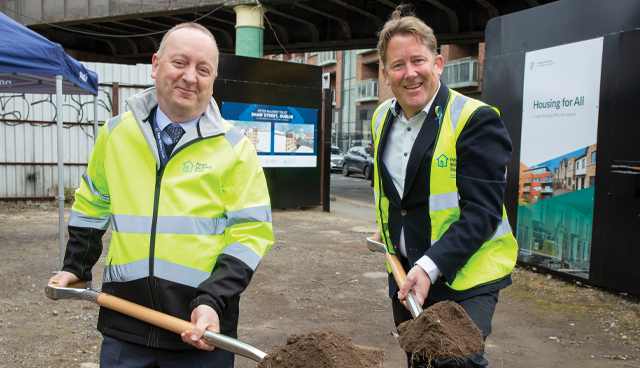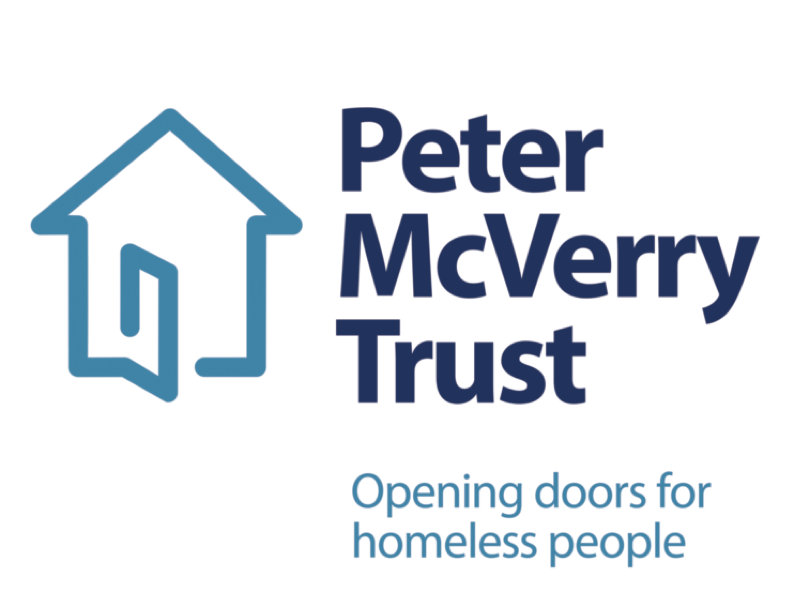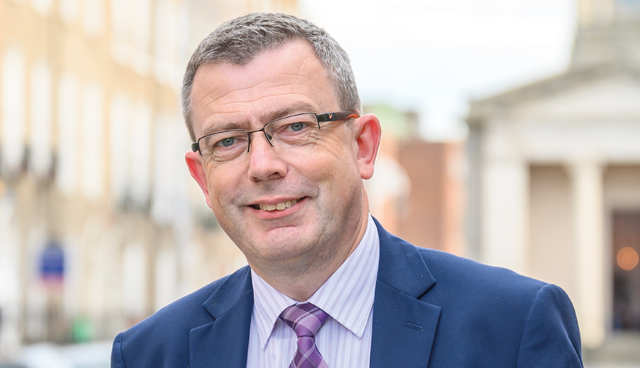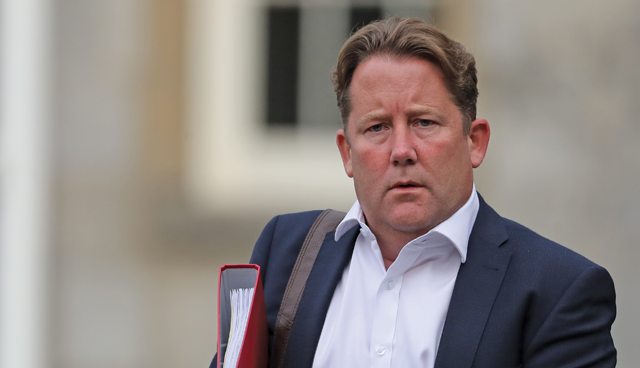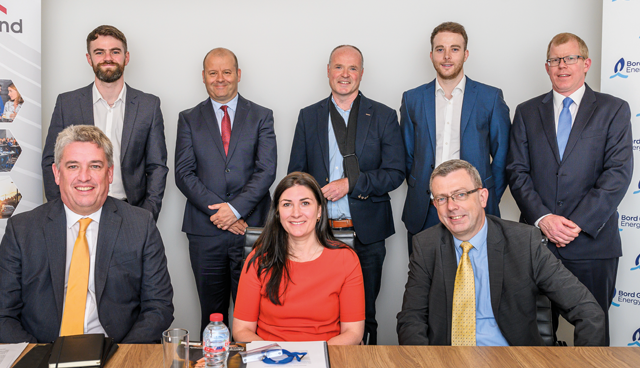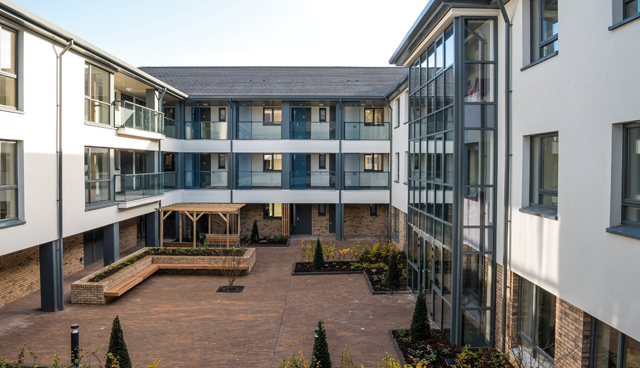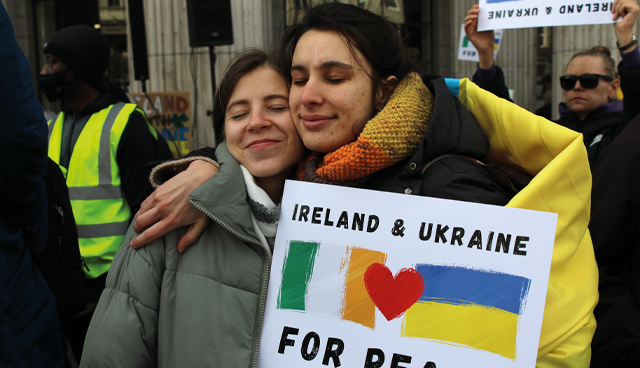
Ukrainian emergency poses ‘supply chain crisis’ for housing
4th July 2022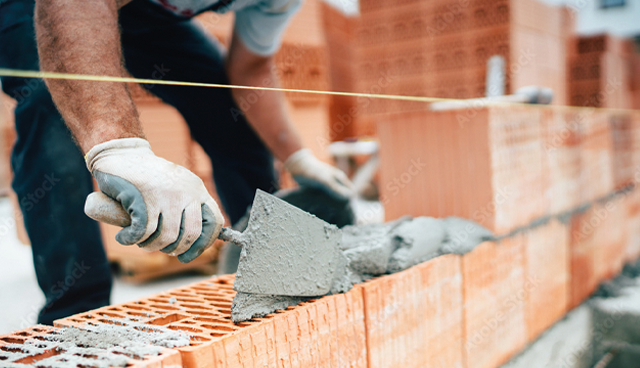
Housing priorities in Northern Ireland
4th July 2022Peter McVerry Trust focuses on tackling dereliction and vacant properties
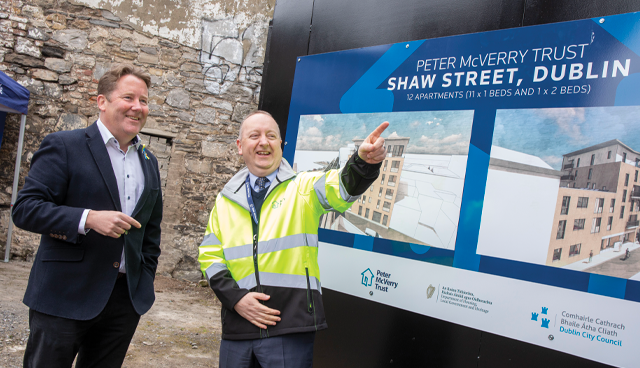
Peter McVerry Trust, the national housing and homelessness charity, is championing the sustainable delivery of social housing and working to bring vacant properties back into use. The charity, which is active in 28 of 31 local authorities across the State, worked with over 10,000 people and helped 1,200 people secure a home in 2021.
The sustainable development of housing and support services in Peter McVerry Trust is an important element of their work. Pat Doyle, the charity’s CEO, explains that as a housing and homeless charity and an Approved Housing Body, the charity recognises their responsibility to ensure the environmental sustainability of their activities.
“As an organisation, we are very conscious of the climate emergency and the role we have to play in tackling the problem. We’re committed to consistently reviewing and progressing actions to reduce our carbon footprint.
“As members of the Irish Green Building Council, Irish Council for Social Housing and a supporting organisation of the All-Ireland Pollinator Plan, our goal is: to work collaboratively and efficiently to improve the energy efficiency of our building stock; make the best possible use of our outdoor spaces in terms of biodiversity; and to work to decarbonise our energy sources and transport fleet.
“As part of our Strategic Plan 2021-2025, we are committed to ensuring on-going sustainable organisational development. This includes reviewing and progressing actions to improve the environmental sustainability of our activities in light of the global climate emergency.”
Sustainable housing development
Peter McVerry Trust is one of Ireland’s leading advocates for action on empty homes, derelict sites and underused spaces. The reusing and repurposing of old and vacant buildings increases housing supply, tackles dereliction and revives urban centres. It also creates a smaller carbon footprint.
“Shaw Street is a great example of Peter McVerry Trust reusing vacant sites for the purpose of social housing. This project will see a long-term, vacant DCC site developed to deliver 12 high quality housing units comprising of 11 one-bed apartments and one two-bed apartments. The project is a partnership between Dublin City Council, the Department of Housing and Peter McVerry Trust.
“This will be our second brownfield apartment scheme in Dublin City Centre and follows quickly on from the completion of our first at New Street South last year. This project is part of a wider strategy of urban regeneration and infill projects,” says Doyle.
The charity strongly believes that addressing the issue of vacant properties can play a significant role in reducing and ultimately eliminating homelessness.
“We’re transforming vacant properties across Ireland, from individual houses to disused shops, and we’ve had more empty homes projects than any other Approved Housing Body in Ireland. We’ve recently acquired a number of derelict heritage properties that will be converted into one- and two-bedroom social housing units.
“These projects work on many levels. The buildings are an undesirable purchase for many – so we’re not in direct competition with first time buyers. They’re derelict and an eye-sore, so converting them into homes revitalises town centres and reduces anti-social behaviour. Finally, their central location ensures our tenants can easily walk to public amenities. It’s a win-win for everyone.”
Vacant Homes Tax
The recent Oireachtas Joint Committee on Housing’s report recommending a tax on vacant homes is greatly welcomed by the charity. The Government plans to introduce a vacant property tax in Budget 2023 which could impact on an estimated 137,000 properties.
“Since 2016, Peter McVerry Trust has been advocating for the introduction of a vacant property tax; this recommendation is an important step forward for the housing sector in this country. We strongly believe an empty homes tax will encourage landlords to renovate or sell their vacant property and will result in an increased number of homes to rent, to buy, and to be used for social housing.
“This tax is not about raising revenue, but rather about creating more social housing, improving communities and lessening carbon outputs by re-using existing stock. A tax on vacant homes is the final piece of the jigsaw for unlocking these properties to provide more social housing across Ireland.”
Preparing for the future
Within its services, the charity is increasing sustainability and educating young clients. Its learning centres work with young people who cannot access mainstream education due to a number of circumstances. In collaboration with GIY, classes will grow their own vegetables, learn about the care and commitment needed to produce food and the importance of not wasting it.
The charity is also currently working alongside Arup, a global leader in engineering, on a general carbon and sustainability assessment of their housing stock. This will inform more environmentally sustainable decisions going forward. A focused investigation into repurposed or retrofitted buildings will also enable Peter McVerry Trust to calculate total carbon savings generated through the reuse of vacant and derelict buildings.
Concluding, Doyle states: “The innovative and sustainable delivery of new homes is central to our mission of creating more pathways for people out of homelessness. There is no doubt that the climate crisis and the escalating cost of construction will continue to prove challenging to the housing sector. There is a lack of available housing for people, but there is no lack of available properties from which to create housing. We see every vacant property as an opportunity; we’ll continue to bring these properties back into use and give more people the key to their own front door.”
Pat Doyle, CEO of Peter McVerry Trust
E: pdoyle@pmvtrust.ie
W: www.pmvtrust.ie

